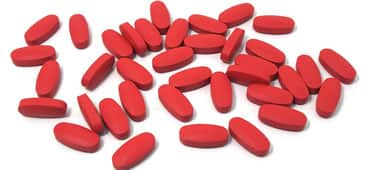This nutrient is actually very important to human health in several ways, from improved immune system function to eye health to better skin. Unfortunately, many people don't know very much about zinc, its functions, where to get it and how much they should be taking each day. In this article, you will find the answers to those questions and more.
What Does Zinc Do?
Despite the fact that our bodies only require a very small amount of zinc, this trace mineral plays a very important role in our daily lives. Zinc helps to boost the immune system and fight off certain ailments, such as the common cold and ear infections. This trace mineral is necessary for proper growth, blood clotting and thyroid function. Zinc also helps the body make proteins and DNA. Additionally, zinc is used to treat several skin conditions, to speed the healing of wounds, and it is needed for our senses of taste and smell to function properly.
Zinc is also sometimes used to treat a wide range of diseases and conditions, including macular degeneration, cataracts, ADHD, tinnitus, Crohn's disease, Alzheimer's disease, osteoporosis, rheumatoid arthritis, ulcerative colitis, peptic ulcers and certain eating disorders. In some cases, zinc may also help with male infertility or erectile dysfunction. In these cases, a zinc supplement may be prescribed to help alleviate related symptoms of these conditions.
Food Sources of Zinc
There are many common sources of food which contain a considerable amount of zinc. Oysters are by far the best source of this trace mineral. Additionally, many red meats, poultry and seafood dishes, like crab and lobster, contain a significant amount of zinc. Beans, nuts, whole grains and dairy products also contain zinc, but in much smaller amounts.
Some foods are fortified with zinc to provide additional ways to add zinc to an everyday diet. Commonly, breakfast cereals or breads may be fortified with this trace mineral. Many people also consume zinc in supplement form since it is present in almost all multivitamins and mineral dietary supplements. Supplements that only contain zinc can also be found in many health food stores and pharmacies.
Side Effects
When the proper amount of zinc is consumed each day, there are no typical side effects. However, if too much zinc is consumed, symptoms like headaches, nausea, vomiting, stomach cramps, diarrhea and loss of appetite usually become apparent. Over time, excess zinc can lead to more serious health issues like lowered immunity, low HDL cholesterol levels and low copper levels. This is more likely to occur among individuals who take zinc supplements.
If you do take a zinc supplement, be sure to take it with water or juice to reduce any negative side effects. Additionally, do not take a zinc supplement at the same time as an iron or calcium supplement, and be aware of your intake of fiber, calcium and coffee as these things may reduce the absorption of zinc considerably.
Deficiency Symptoms
In general, zinc deficiencies are very rare in North America. In areas where malnutrition is a concern, zinc deficiencies may be more prevalent. A zinc deficiency is typically accompanied by several symptoms like weight loss, hair loss, loss of appetite and diarrhea. In some cases, individuals with a zinc deficiency may also lose some of their ability to taste foods, or develop eye and skin sores.
Daily Dosage Recommendations
Both age and sex determine what your daily dosage recommendation of zinc will be. Between birth and the age of 6 months, babies should consume two milligrams (mg) of zinc each day. From the age of 7 months to 3 years, that amount should increase to three mg per day. At age 4, children should start consuming about 5 mg. Then, at age 9, they should increase that daily intake amount to eight mg per day.
At the age of 14, the recommended daily dosage for zinc changes based on sex. Boys ages 14 to 18 should take 11 mg of zinc each day, while girls of that age should take nine mg daily. As adults, men should consume 11 mg of zinc per day while women need only consume eight mg daily.
Like many other minerals and vitamins, the amount of zinc recommended per day may be altered based on an individual's personal health and circumstances. For instance, women who are pregnant or breastfeeding generally need to consume three or four more milligrams of zinc per day than normal. Other groups that may need to consume more zinc include people who have had gastrointestinal surgery, people with digestive disorders, alcoholics, people with sickle cell disease and vegetarians. Always consult a physician before increasing your daily intake of zinc beyond the recommended amounts for your age and sex.
